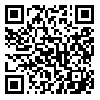Volume 23, Issue 2 (summer 2017)
Back to this Issue |
Back to browse issues page
Download citation:
BibTeX | RIS | EndNote | Medlars | ProCite | Reference Manager | RefWorks
Send citation to:



BibTeX | RIS | EndNote | Medlars | ProCite | Reference Manager | RefWorks
Send citation to:
Sadat Z, Salehi N, Afazel M R, Aboutalebi M S, Dianati M. The effect of Espresso coffee consumption through gastric tube on respiratory indicators among mechanically ventilated patients: A randomized clinical trial
. Journal of Hayat 2017; 23 (2) :185-195
URL: http://hayat.tums.ac.ir/article-1-1891-en.html
URL: http://hayat.tums.ac.ir/article-1-1891-en.html
Zohreh Sadat1 

 , Nasrin Salehi2
, Nasrin Salehi2 

 , Mohammad Reza Afazel3
, Mohammad Reza Afazel3 

 , Mohammad Sadegh Aboutalebi *
, Mohammad Sadegh Aboutalebi * 

 4, Mansur Dianati5
4, Mansur Dianati5 




 , Nasrin Salehi2
, Nasrin Salehi2 

 , Mohammad Reza Afazel3
, Mohammad Reza Afazel3 

 , Mohammad Sadegh Aboutalebi *
, Mohammad Sadegh Aboutalebi * 

 4, Mansur Dianati5
4, Mansur Dianati5 


1- Assistant Professor, Dept. of Midwifery, School of Nursing and Midwifery, Kashan University of Medical Sciences, Kashan, Iran; Member of Trauma Nursing Research Center, Kashan University of Medical Sciences, Kashan, Iran
2- MSc. in Nursing, School of Nursing and Midwifery, Kashan University of Medical Sciences, Kashan, Iran
3- Instructor, Dept. of Medical Surgical Nursing, School of Nursing and Midwifery, Kashan University of Medical Sciences, Kashan, Iran
4- Instructor, Dept. of Critical Care Nursing, School of Nursing and Midwifery, Isfahan University of Medical Sciences, Isfahan, Iran ,ms_aboutalebi@yahoo.com
5- Assistant Professor, Dept. of Medical Surgical Nursing, School of Nursing and Midwifery, Kashan University of Medical Sciences, Kashan, Iran
2- MSc. in Nursing, School of Nursing and Midwifery, Kashan University of Medical Sciences, Kashan, Iran
3- Instructor, Dept. of Medical Surgical Nursing, School of Nursing and Midwifery, Kashan University of Medical Sciences, Kashan, Iran
4- Instructor, Dept. of Critical Care Nursing, School of Nursing and Midwifery, Isfahan University of Medical Sciences, Isfahan, Iran ,
5- Assistant Professor, Dept. of Medical Surgical Nursing, School of Nursing and Midwifery, Kashan University of Medical Sciences, Kashan, Iran
Abstract: (8072 Views)
Background & Aim: The role of caffeine as a cerebral stimulant for improving respiratory indicators in the mechanically ventilated patients is unclear. The purpose of this study was to evaluate the effect of coffee consumption on respiratory indicators among the mechanically ventilated patients in the Intensive Care Unit (ICU).
Methods & Materials: A double blind, randomized clinical trial (IRCT2013122915972N1) was performed on 80 patients who were selected by convenience sampling and randomly allocated into two groups (intervention and control). For the intervention group was administered 3.5 grams of espresso coffee powder dissolved in 80 cc water, then 20 cc water through gavage about an hour after breakfast. The control group received 100 cc distilled water. Respiratory parameters were recorded and compared in the two groups 2 minutes before the intervention and 30 minutes and 60 minutes after the intervention. Chi-square test, t-test and the repeated measures analysis of variance were used to analyze the data.
Results: There was no difference between the two groups in the baseline variables. After the intervention, the spontaneous respiratory rate, tidal volume, the minute ventilation rate and arterial O2 saturation increased in the intervention group compared to the control group, but the increase was statistically significant only for the spontaneous respiratory rate and tidal volume.
Conclusion: Espresso coffee consumption through gastric tube in the mechanically ventilated patients increases the spontaneous respiratory rate and tidal volume but does not significantly affect other respiratory indicators.
Methods & Materials: A double blind, randomized clinical trial (IRCT2013122915972N1) was performed on 80 patients who were selected by convenience sampling and randomly allocated into two groups (intervention and control). For the intervention group was administered 3.5 grams of espresso coffee powder dissolved in 80 cc water, then 20 cc water through gavage about an hour after breakfast. The control group received 100 cc distilled water. Respiratory parameters were recorded and compared in the two groups 2 minutes before the intervention and 30 minutes and 60 minutes after the intervention. Chi-square test, t-test and the repeated measures analysis of variance were used to analyze the data.
Results: There was no difference between the two groups in the baseline variables. After the intervention, the spontaneous respiratory rate, tidal volume, the minute ventilation rate and arterial O2 saturation increased in the intervention group compared to the control group, but the increase was statistically significant only for the spontaneous respiratory rate and tidal volume.
Conclusion: Espresso coffee consumption through gastric tube in the mechanically ventilated patients increases the spontaneous respiratory rate and tidal volume but does not significantly affect other respiratory indicators.
Send email to the article author
| Rights and permissions | |
 |
This work is licensed under a Creative Commons Attribution-NonCommercial 4.0 International License. |



